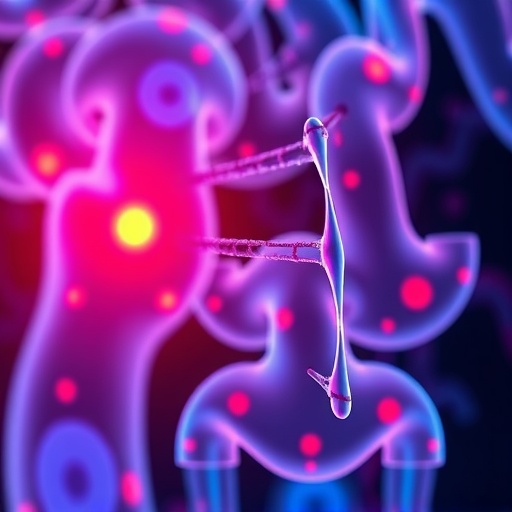Colorectal cancer (CRC) remains one of the deadliest malignancies worldwide, marked by uncontrolled growth of glandular epithelial cells within the colon or rectum. Despite advances in surgical techniques and chemotherapy regimens, late-stage diagnosis and metastasis contribute heavily to its high mortality rate. Recent scientific endeavors have increasingly turned toward molecular-level investigations to unveil novel diagnostic and therapeutic avenues. Among these emerging molecular players, microRNAs (miRNAs) have rapidly ascended as key regulators of gene expression, orchestrating critical pathways implicated in CRC’s initiation, progression, and metastasis.
MicroRNAs are short, non-coding RNA molecules, typically 20-22 nucleotides in length, that modulate gene expression post-transcriptionally. By binding to complementary sequences on target messenger RNAs (mRNAs), they either inhibit translation or promote mRNA degradation, thereby fine-tuning protein synthesis. In cancer biology, miRNAs can operate dichotomously either as oncogenes (oncomiRs) promoting tumor growth and invasion or as tumor suppressors curbing malignant transformations. This dual functionality renders them promising candidates for both biomarker discovery and targeted therapy development.
The recent rapid mini-systematic review published in BMC Cancer comprehensively aggregates and scrutinizes literature spanning over two decades (from 2000 to 2023), meticulously evaluating the roles of various miRNAs in colorectal cancer. By applying the PICO framework, the researchers compared miRNA profiles between CRC patients and healthy controls to discern patterns relevant to disease progression, survival outcomes, and treatment responsiveness. Incorporating data from multiple expansive databases such as PubMed, Google Scholar, and ScienceDirect, this review distilled insights from numerous studies while ensuring rigorous exclusion of duplicates and irrelevant reports.
Central to the analysis was the categorization of 28 miRNAs, systematically classified based on their putative tumor suppressor or oncogenic properties in colorectal tumorigenesis. This classification was further substantiated using The Cancer Genome Atlas (TCGA) data, a robust repository of genomic and transcriptomic profiles from thousands of cancer patients. Among these, a striking subset of 14 miRNAs emerged as particularly significant due to their consistent differential expression and clinical correlations within CRC cohorts, suggesting their influential roles in disease biology.
Of special note is miR-200a, which not only demonstrated altered expression patterns in colorectal tumors but also showed statistically significant associations with patient survival metrics. This implicates miR-200a as not merely a molecular bystander but a potentially potent prognostic indicator. The involvement of miR-200a and other prominent miRNAs underscores the complex regulatory networks modulating epithelial-mesenchymal transition (EMT), a critical process by which cancer cells acquire invasive and metastatic capacities.
The review also highlights that miRNAs, due to their stability in bodily fluids and altered expression in cancer states, hold immense promise as non-invasive biomarkers. Unlike traditional tumor markers, which often lack specificity or sensitivity, miRNA signatures can potentially offer earlier detection, more accurate prognosis, and even insights into personalized therapeutic interventions. The convergence of miRNA profiling with conventional diagnostic modalities could thus revolutionize CRC management paradigms.
Importantly, this study’s extensive collation and analysis of validated miRNAs associated with colorectal cancer progression provide an updated compendium that bridges knowledge gaps left by prior fragmented studies. The rapid mini-systematic nature of the review allows for timely synthesis in this rapidly evolving field, facilitating translational applications and guiding future investigative efforts. By assembling a comprehensive miRNA landscape, the authors lay groundwork for biomarker panels that could be incorporated into routine clinical practice.
Furthermore, the mechanistic insights gleaned from examined studies emphasize the multifaceted roles of miRNAs in CRC. Their influence spans regulation of cell cycle checkpoints, apoptosis, angiogenesis, immune evasion, and even chemoresistance. This positions miRNAs not only as diagnostic and prognostic tools but also as viable therapeutic targets. Modulating their expression through miRNA mimics or inhibitors might yield novel strategies to suppress tumor growth or overcome drug resistance.
The integration of miRNA research into colorectal cancer exemplifies precision medicine’s promise, where molecular characterization tailors interventions to individual patient profiles. However, challenges remain, including ensuring reproducibility across diverse populations, standardizing detection techniques, and elucidating context-dependent effects of miRNAs. The reviewed work underscores a critical step forward by compiling data across varying study designs and cohorts, bringing clarity to this complexity.
Moreover, miRNA-based markers could also redefine monitoring treatment response. The dynamic fluctuations of specific miRNAs during chemotherapy or targeted therapies may reflect tumor burden or emerging resistance mechanisms. Real-time miRNA profiling might ultimately empower clinicians to adjust therapeutic regimens promptly, improving outcomes.
The article’s significance also lies in its methodical approach, utilizing EndNote for diligent management of citations and employing strict inclusion/exclusion criteria to ensure only high-quality studies were synthesized. This rigorous methodology enhances confidence in the presented conclusions and supports the reproducibility of this systematic effort.
In sum, microRNAs constitute an intricate regulatory axis in colorectal cancer biology with profound diagnostic, prognostic, and therapeutic implications. The comprehensive analysis of identified miRNAs, backed by robust datasets like TCGA, enriches our understanding of how these small RNA molecules shape CRC pathophysiology. As research advances, harnessing miRNAs may well become integral to transforming colorectal cancer care, enhancing early detection, personalized therapy, and ultimately patient survival.
This evolving landscape demands further investigation into miRNA functional mechanisms, optimization of detection platforms, and validation of miRNA-based biomarkers in large-scale clinical trials. Yet, the rapid mini-systematic review sets a compelling stage for embracing miRNA science as a cornerstone in the fight against colorectal cancer.
Subject of Research: MicroRNAs involved in the development, progression, and prognosis of colorectal cancer.
Article Title: MicroRNAs involved in colorectal cancer, a rapid mini-systematic review.
Article References:
Shirzad, S., Eterafi, M., Karimi, Z. et al. MicroRNAs involved in colorectal cancer, a rapid mini-systematic review. BMC Cancer 25, 934 (2025). https://doi.org/10.1186/s12885-025-14343-1
Image Credits: Scienmag.com




